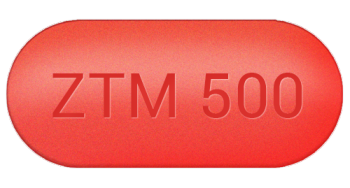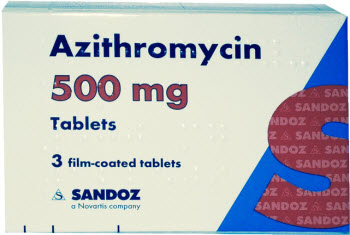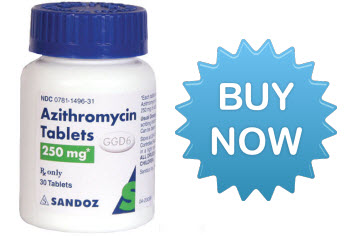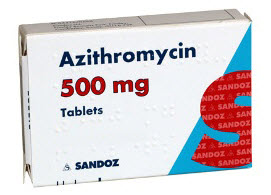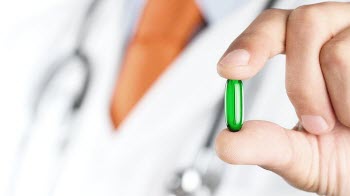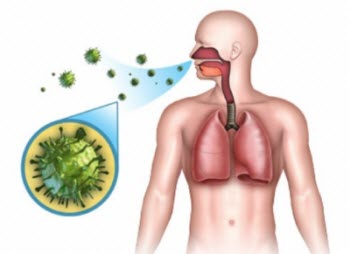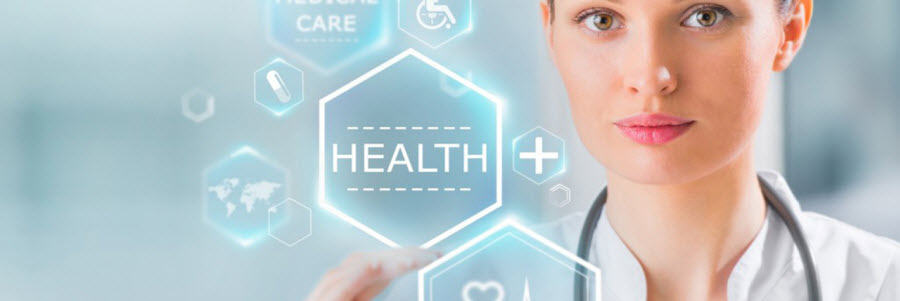
Antibiotics: Questions And Answers
How does the impact of antibiotics on the body?
Antibiotics are used to treat a variety of inflammatory processes in the body, caused by opportunistic or pathogenic bacteria: staphylococci, pneumococci, chlamydia, etc. mikoplazamami The mechanism of action of different groups of antibiotics on bacteria varies. In some formulations it consists in inhibiting the synthesis of outer shell bacteria, while others - in the suppression of bacterial cells in full protein synthesis. Keep in mind that antibiotics for viral infections are not effective. Acceptance of antimicrobial agents for viral diseases is shown only if the added bacterial complication.
What is a broad-spectrum antibiotic?
There are antibiotics of a narrow spectrum of action, to combat a certain type of bacteria. The doctor appoints them based on the results of bacteriological seeding - a laboratory study that shows exactly what bacteria caused by inflammation and to some antibiotics, these bacteria are sensitive.
In the case where the bacteriological seeding is not made, and the treatment is necessary to urgently appoint Dr. broad-spectrum antibiotics. They do not guarantee a cure, but the probability of that help - essential. However, such a broad-spectrum means has one big drawback: they apply to both pathogenic, and the "friendly" bacteria organism.
This may lead to side effects, for example, intestinal or vaginal dysbacteriosis.
Can I use the rest of antibiotic treatment in the future for the development of bacterial inflammation?
First, strictly follow the doctor's instructions when taking antibiotics, the package must not remain unused pills. A self-administration of antibiotics without a doctor's prescription is very dangerous for your health!
Secondly, even if they were, to use them in the future can not be as bacterial inflammation may be caused by other microorganisms, which are sensitive to antibiotics data.
What is antibiotic resistance?
Antibiotic resistance, or another antibiotic resistance that occurs when the bacteria are no longer sensitive to the drugs, and drugs become less effective in fighting infection. Resistance develops due to improper and uncontrolled use of antibiotics. People often use antibiotics for other purposes (for viral diseases as symptomatic or prophylactic agent) that is categorically wrong.
Why during antibiotic therapy should not drink alcoholic beverages?
Alcohol can affect both the activity of antibiotics, and the suction process and to further remove toxic substances from the body by the liver, on the other hand, some antibiotics disrupt the metabolism of alcohol in the body, which may lead to intoxication and manifested by nausea, cramps, shortness of breath, pain in the heart . Furthermore, it may even be unsafe for human life.
What could be side effects from antimicrobial agents?
Antibiotics - a medication with a strong effect, so to receive them must be approached with great responsibility. It is impossible to independently appoint or revoke acceptance of these drugs, it is necessary to listen to the doctor's recommendations. As with any drug, antibiotics may cause some side effects. Depending on the product can be damaged gastrointestinal (occurrence of bowel dysbacteriosis after taking antibiotics), the nervous system, hematopoietic system, kidneys, etc.
Why antibiotics can not be taken by pregnant?
Indeed, most of the antibiotics is undesirable to take the first trimester of pregnancy, when the birth of the fetus begins. During this period, any impact, including drug, can cause disturbances in fetal development or even its destruction.
But the opinion that all antibiotics are contraindicated in women "position" is erroneous. Not all groups of antimicrobial drugs have toxic effects on the fetus. The least dangerous from the point of view of the adverse effects on the unborn child are: penicillins, cephalosporins, macrolides. The next group of antibiotics - aminoglycosides, sulfonamides, nitrofurans - are drugs that doctors prescribe with caution, if there are serious indications. Categorically unacceptable during pregnancy are chloramphenicol, tetracycline, trimethoprim, aminoglycosides.
Can I drink antibiotics during pregnancy planning?
Planning The gestation period is needed to ensure that the future mom surveyed, all the centers of a chronic infection were detected, treated, and antibiotics including, if there is evidence for this, healed all carious teeth, and then updated in pregnancy. Antibiotics are even therapeutic concentrations in the conception period and dividing the egg does not bring any harm.
If there is such a need, and the risks for the mother outweigh the risks from taking antibiotics-then da.Antibiotiki assigned when such a need, even during pregnancy - for example if there is an infection, which can adversely affect the fetus. Of course, the drug and the dosage should choose a specialist.
What to do if I missed one antibiotics?
Missed antibiotics and one instead of 3 times a day taken two times. Will it affect somehow to the recovery and whether something needs to be taken further?On the recovery is not affected. Take the tablet as soon as you remember. Do not take two tablets in a row.
Is it true that antibiotics kill all intestinal microflora?
Antibiotics kill most of the beneficial microbes in the gut, but not all of the microflora. The probiotics in the intestines to perform the same amount of major role in protecting the body such as the liver. If they all died, the human condition would be the same hard as liver failure.
However, a lot of probiotics really die because of antibiotics. Therefore, there is a thrush after antibiotics, and possibly indigestion. Usually these problems are solved antifungals and reception spores of beneficial bacteria (lactobacillus, bifidobacteria, E. coli).
How often one and the same antibiotic can be used?
Depending on the degree of disease. If you antibiotics appointed doctor, the entire course of treatment is required to spend on drink, if they for some reason do not help, consult a doctor. Do not self-medicate, it is fraught with consequences!
How many days after the disease it is time to drink antibiotics?
Antibiotics need to drink as soon as they are appointed by the attending physician !!!
Self-medication with antibiotics is ineffective + socially dangerous. People have not recovered their sores go on the streets and coughing on our loved ones wonder pathogens that are resistant to antibiotics ..
As a result, and then the doctors do not understand what you treat .. and begin to prick antibiotics 6 generations who are crazy money .. and the people around you are in a difficult situation is not like taking anything, and antibiotics from the pharmacy did not want to work for trivial sore ..
In diseases with pathogens resistant to antibiotics is very vivid example of nosocomial pneumonia .. is the one that wanders inside a medical institution, and no antibiotic is not afraid .. Nosocomial pneumonia are the first leading cause of death from hospital-acquired infections. Deaths from hospital pneumonia is 70% That's where something like this could result in a massive and uncontrolled self-medication with antibiotics !!
